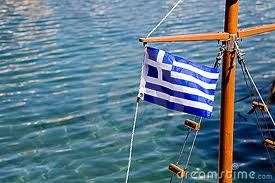
European countries provide Greece with tens of billions of euros in aid, yet accept that the cash-strapped country cannot for the moment collect tax receipts from its large shipping industry because of the low tax regimes across the Continent.
Despite the Greek government’s urgent need for funds, the country exempts income which shipping companies earn abroad from taxation. Because other countries also apply extremely low tax rates on the sector or even subsidize it, Greek officials fear that the very mobile industry might relocate abroad and make employees redundant if it were taxed.
Still, as a source of potential tax revenue, it’s hard to overlook Greek shippers.
The industry is huge: the country’s ship owners transferred €140 billion ($173 billion) in untaxed receipts to the country in the ten years to 2010, the Union of Greek Shipowners said in its annual report, citing Greek central bank data.
The figure compares to Greece’s €280 billion government total debt at the end of March.
The hitch is why endure a tax at home when shippers could easily relocate to a country with better conditions?
Many European countries apply very low tax rates on earnings from shipping investments. A number of them have a so-called tonnage tax, which essentially reduces the tax burden for shipping investments.
One of these countries is Germany where not only shipping companies, but also private investors, can take advantage of the low tonnage tax by buying shares of mutual funds which own vessels.
An example calculated by Nordcapital, a manager of such closed-end funds, shows how low taxes are in Germany. A €105,000 investment in a fund with a 7.5% annual yield leads to a mere €97 tax payment per year, equivalent to a tax rate of 1.2% - a small fraction of Germany’s ordinary tax rate for capital income of 27%.
In addition to effectively subsidizing ship investments with the discount tax rate, the German government plans to pay direct subsidies of €57.8 million to the shipping industry this year, similar to preceding years’ subsidies.
Similar tonnage taxation as in Germany is applied in Belgium, Cyprus, Denmark, Finland, France, Ireland, Italy, Malta, the Netherlands, Norway, Poland, Spain, Sweden and the U.K., according to auditor PricewaterhouseCoopers.
By competing against each other with low or zero tax rates, European countries hinder cash-strapped neighbors such as Greece from exploiting what could be a viable tax base.
Greece owns the world’s largest shipping fleet, accounting for 16% of global tonnage, according to United Nations Conference on Trade and Development, or UNCTAD, data from 2011.
Vassilis Fouskas, Professor of International Relations at Richmond University in the U.K., however, doesn’t think Greece should introduce or raise taxes on the shipping industry.
“Shipping in Greece is an offshore business,” he said, and Greek shippers could easily go abroad.
“Greek businessmen can register in Dubai,” which also offers a very favorable tax regime for the industry, he noted.
If Greek shippers relocate, this would lead to job losses, warns Mr. Fouskas, who is writing a book on the Greek crisis.
The National Confederation of Hellenic Commerce warned that 60,000 jobs at Greek maritime companies and in related service and supply industries would be at risk if the fiscal exemption were be scrapped.
However, job losses may be avoided if shipping earnings are taxed only at a small rate, and if other countries discourage relocations of Greek businesses by raising their tax rates.
Money inflows from transport services contributed €14.1 billion to Greece’s current account balance last year, according to Greece’s central bank, equivalent to 7.3% of the Greek gross domestic product.
Thus, even a low tax rate on the shipping industry’s earnings may be able to ease Greece’s fiscal strains - if other European countries aid their neighbor with simultaneous tax hikes.
Source: Wall Street Journal
We use cookies to improve your experience. By continuing to use our site, you accept our Cookies, Privacy Policy,Terms and Conditions. Close X